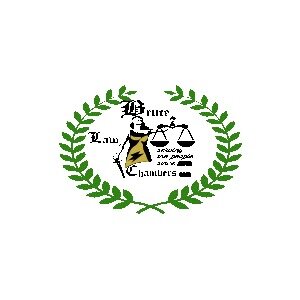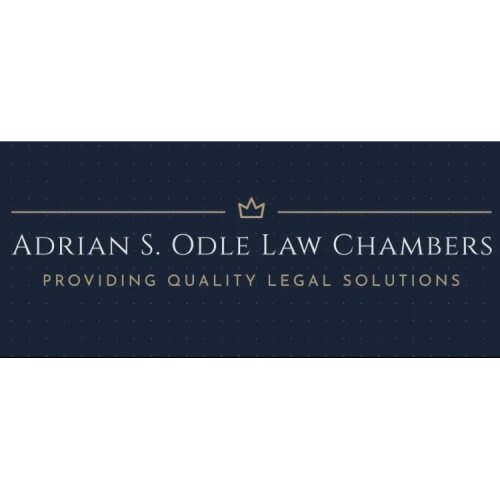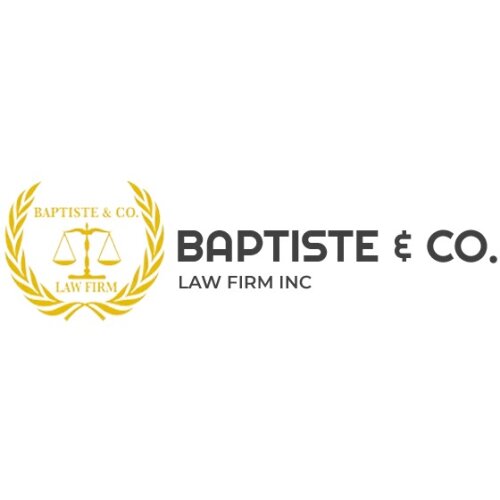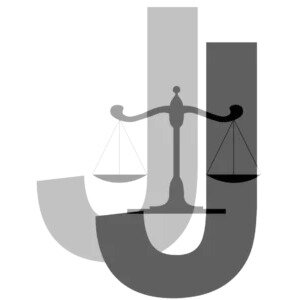Best Commercial Real Estate Lawyers in Saint Vincent and the Grenadines
Share your needs with us, get contacted by law firms.
Free. Takes 2 min.
Free Guide to Hiring a Real Estate Lawyer
Or refine your search by selecting a city:
List of the best lawyers in Saint Vincent and the Grenadines
About Commercial Real Estate Law in Saint Vincent and the Grenadines:
Commercial Real Estate in Saint Vincent and the Grenadines refers to properties used for business purposes, such as office buildings, retail spaces, industrial facilities, and restaurants. This area of law covers a wide range of issues, including leasing agreements, property sales and purchases, zoning regulations, property development, and more.
Why You May Need a Lawyer:
It is advisable to consult with a lawyer specializing in Commercial Real Estate in Saint Vincent and the Grenadines in various situations. These may include negotiating or drafting lease agreements, conducting due diligence before purchasing a commercial property, resolving disputes with tenants or landlords, or seeking guidance on zoning laws and regulations.
Local Laws Overview:
In Saint Vincent and the Grenadines, Commercial Real Estate law is governed by a combination of statutory laws, common law, and local regulations. It is essential to understand the legal framework surrounding property transactions, lease agreements, property disputes, and other commercial real estate matters. Hiring a knowledgeable attorney can help navigate these intricate laws and protect your interests.
Frequently Asked Questions:
1. What are the essential steps involved in purchasing commercial real estate in Saint Vincent and the Grenadines?
The process of buying commercial real estate typically involves conducting due diligence, negotiating a purchase agreement, securing financing, and closing the transaction with legal documentation.
2. How can I resolve a dispute with my commercial tenant or landlord?
If you are facing a disagreement with your tenant or landlord, it is advisable to consult with a lawyer specializing in commercial real estate law to explore your legal options and seek a resolution through negotiation or legal action.
3. Can I rezone a commercial property in Saint Vincent and the Grenadines?
Rezoning a commercial property in Saint Vincent and the Grenadines involves obtaining approval from the relevant authorities. A lawyer can guide you through the zoning laws and regulations to help facilitate the process.
4. What are the key considerations when drafting a commercial lease agreement?
When drafting a commercial lease agreement, it is essential to outline the terms of the lease, including rent, duration, maintenance responsibilities, and any specific provisions relevant to the commercial property.
5. How can I ensure compliance with local regulations when developing a commercial property?
Consulting with a lawyer specializing in commercial real estate law can help ensure compliance with local regulations, such as zoning laws, building codes, environmental regulations, and other legal requirements applicable to property development.
6. What are the common pitfalls to avoid in commercial real estate transactions?
Common pitfalls in commercial real estate transactions include inadequate due diligence, poorly drafted agreements, failure to consider zoning restrictions, and overlooking potential disputes with tenants or landlords. To avoid these pitfalls, seek legal advice from an experienced attorney.
7. How can I protect my interests in a commercial real estate deal?
To protect your interests in a commercial real estate deal, it is advisable to work with a lawyer who can review contracts, conduct thorough due diligence, negotiate favorable terms, and assist in resolving disputes that may arise during the transaction.
8. What are the rights and obligations of commercial landlords and tenants in Saint Vincent and the Grenadines?
The rights and obligations of commercial landlords and tenants in Saint Vincent and the Grenadines are governed by lease agreements, local laws, and common practices. It is essential to understand these legal frameworks to ensure a mutually beneficial relationship between parties.
9. How can I assess the value of a commercial property in Saint Vincent and the Grenadines?
To assess the value of a commercial property in Saint Vincent and the Grenadines, consider factors such as location, size, condition, rental income, market trends, and potential for future growth. Consulting with a real estate appraiser or lawyer specializing in commercial real estate can provide valuable insights.
10. What are the key legal considerations when investing in commercial real estate in Saint Vincent and the Grenadines?
When investing in commercial real estate in Saint Vincent and the Grenadines, it is crucial to consider legal factors such as property title issues, zoning restrictions, tax implications, financing options, and regulatory compliance. Seeking legal advice from a knowledgeable attorney can help ensure a smooth and successful investment.
Additional Resources:
For additional resources and information on Commercial Real Estate in Saint Vincent and the Grenadines, consider reaching out to the local chamber of commerce, real estate association, or legal organizations specializing in property law. Governmental bodies such as the Ministry of Housing and Urban Development may also provide valuable insights and resources for commercial real estate transactions.
Next Steps:
If you require legal assistance in Commercial Real Estate in Saint Vincent and the Grenadines, consider contacting a reputable law firm with experience in property law. Schedule a consultation to discuss your specific needs and concerns, and work with a knowledgeable attorney to navigate the complexities of commercial real estate transactions and protect your interests.
Lawzana helps you find the best lawyers and law firms in Saint Vincent and the Grenadines through a curated and pre-screened list of qualified legal professionals. Our platform offers rankings and detailed profiles of attorneys and law firms, allowing you to compare based on practice areas, including Commercial Real Estate, experience, and client feedback.
Each profile includes a description of the firm's areas of practice, client reviews, team members and partners, year of establishment, spoken languages, office locations, contact information, social media presence, and any published articles or resources. Most firms on our platform speak English and are experienced in both local and international legal matters.
Get a quote from top-rated law firms in Saint Vincent and the Grenadines — quickly, securely, and without unnecessary hassle.
Disclaimer:
The information provided on this page is for general informational purposes only and does not constitute legal advice. While we strive to ensure the accuracy and relevance of the content, legal information may change over time, and interpretations of the law can vary. You should always consult with a qualified legal professional for advice specific to your situation.
We disclaim all liability for actions taken or not taken based on the content of this page. If you believe any information is incorrect or outdated, please contact us, and we will review and update it where appropriate.
Browse commercial real estate law firms by city in Saint Vincent and the Grenadines
Refine your search by selecting a city.












